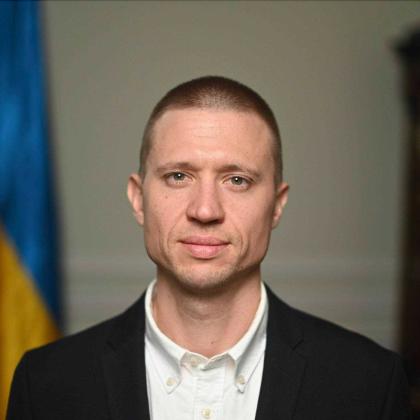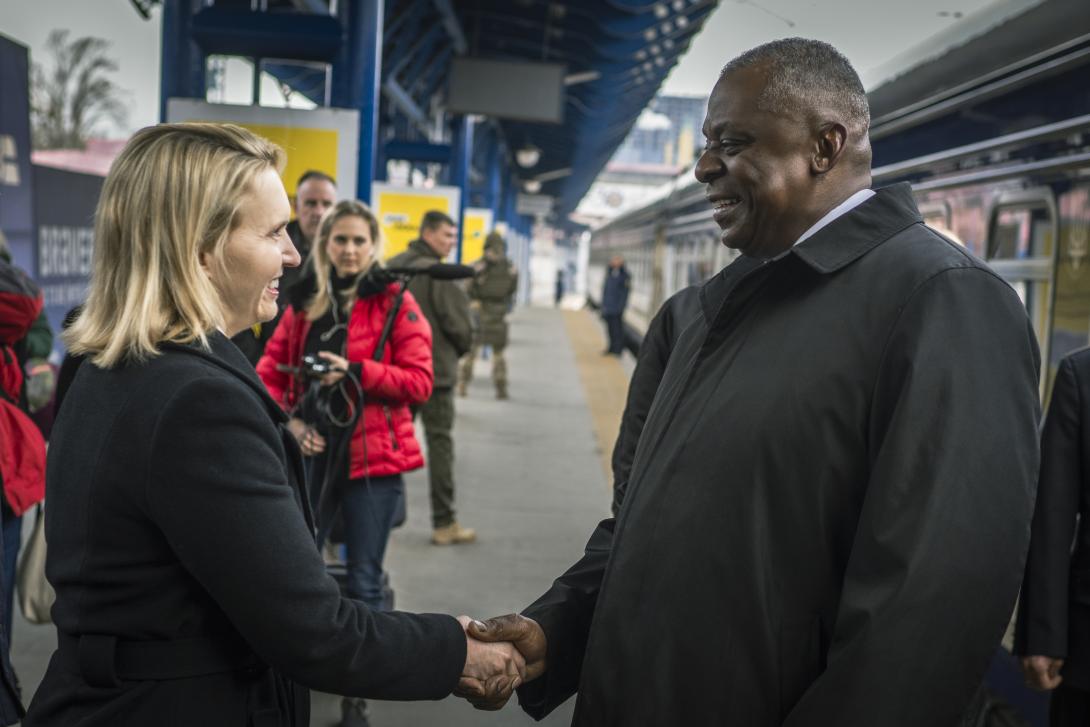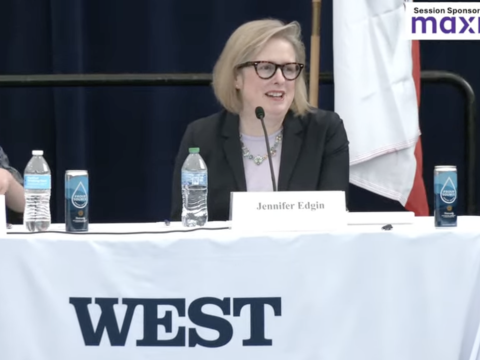Ukraine Leverages AI and Tech Alliances for Refugee Services
Ukraine plans to enhance its use of technology to support citizens abroad who became refugees following the Russian attacks in 2022.
“At the moment, we have a potential demand of 70,000 Ukrainian citizens per one consular worker,” Anton Demokhin, Ukrainian deputy foreign minister and chief digital transformation officer at the Ministry of Foreign Affairs, told SIGNAL Media in an interview.
SIGNAL Media was granted exclusive access as Demokhin toured the United States in search of key technology partners.
Russia’s invasion resulted in 6.5 million people fleeing Ukraine. Of these, 5.9 million are residing in Europe and about half a million have moved to other parts of the world, according to United Nations statistics.
This humanitarian crisis has put a strain on consular services, and the country's response involves forming a coalition with technology giants—such as leaders in the artificial intelligence sector, smaller niche firms, the U.S. government and international organizations connected to the United Nations (UN) ecosystem, including the UN High Commissioner for Refugees and the International Organization for Migration. Demokhin expects to utilize cutting-edge technology to enhance services despite the challenges posed by the war-ravaged country.
“Leveraging the power of AI, so that diplomats can actually do more of the ‘fun’ stuff, like actually do their diplomatic work: engaging in face-to-face communication instead of sitting and typing,” said Demokhin.
The transition includes handling unstructured data, which is common in this type of work.
“We will be using big tech solutions, starting with readily available tools and solutions, without having to invest in developing something that may already exist,” Demokhin explained.

We will be using big tech solutions, starting with readily available tools.
Ukraine has become a world leader in AI and communications at the edge, crucial skills needed to wage war. Yet, this is a new front that has been overlooked at an international level and requires funding that will affect the lives of millions of Ukrainians, as well as the communities hosting these refugees.
“Priority number one is military defense, and that is being covered as much as possible. At the same time, there are certain funds available internationally within the concept of international cooperation to foster digital development and the emergence of the digital economy; so there are funds that may not be applied to anything military-related or dual-use and that would be supporting digital transformation programs in Ukraine that do not conflict in any way with the support related to the war directly,” Demokhin said.
The war has transformed the country and the needs of its population. Creating an AI-powered consular service presents a challenge for both the technical staff and those tasked with serving vulnerable citizens worldwide.
“Definitely, it's a cultural change,” Demokhin said.




Comments